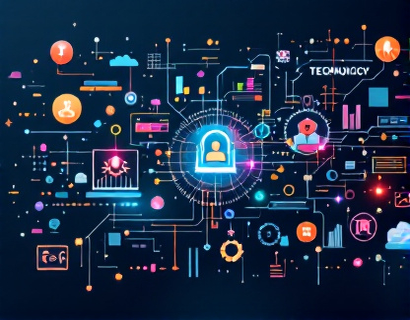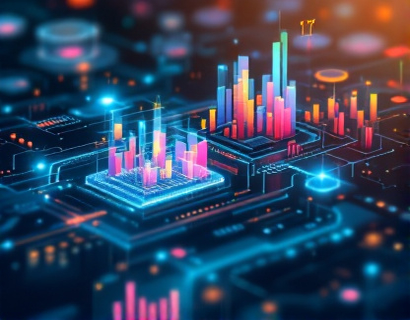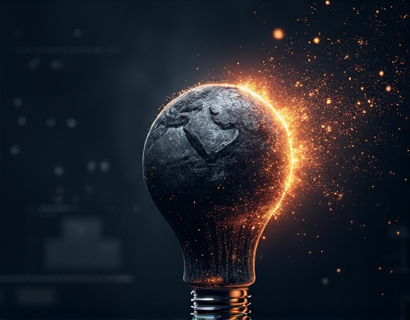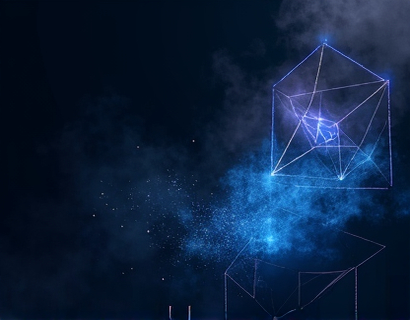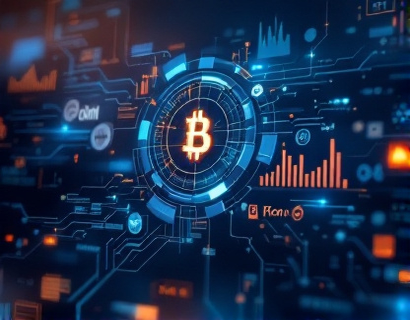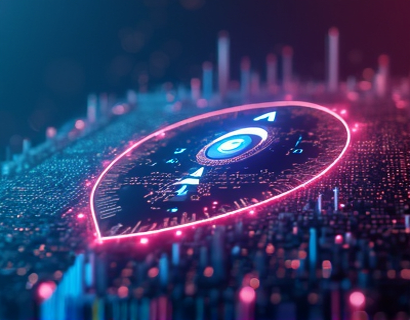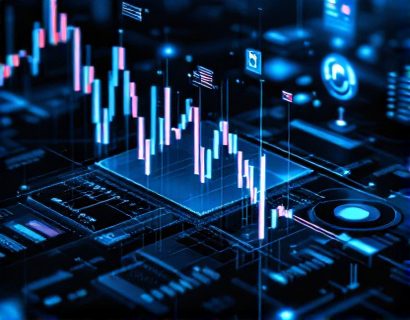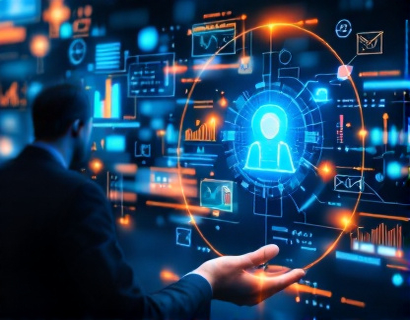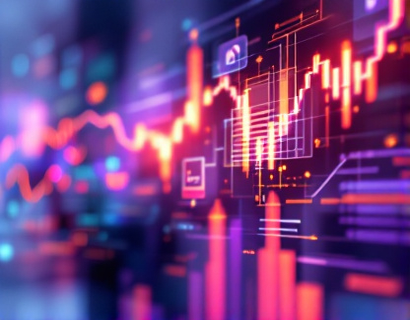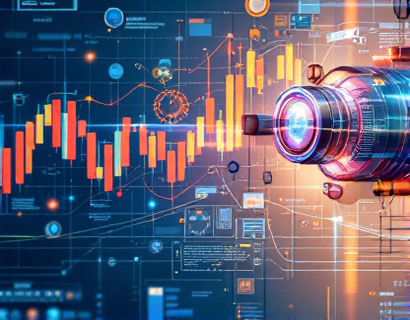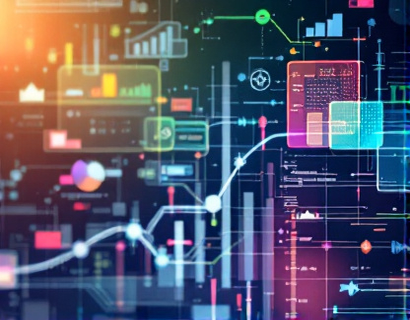Crypto and AI: Transforming App Ecosystems with Next-Gen Solutions for Enhanced User Experiences
The intersection of cryptocurrency and artificial intelligence (AI) is giving rise to a new era of digital innovation, fundamentally transforming app ecosystems and redefining user experiences. This convergence is not just a technological curiosity but a powerful force reshaping the online world, offering unprecedented levels of security, efficiency, and personalization. For tech enthusiasts and early adopters, understanding the dynamics of this fusion is crucial, as it promises to revolutionize how we interact with digital services and applications.
The traditional app ecosystem has been built on centralized servers and databases, where data is stored and processed in a linear, often opaque manner. This model, while effective in many respects, has inherent limitations, particularly in terms of security, scalability, and user privacy. The introduction of blockchain technology and AI addresses these challenges head-on, providing a more robust, transparent, and intelligent framework for app development and user interaction.
Blockchain: The Backbone of Trust and Security
Blockchain technology, at its core, is a decentralized ledger that records transactions across multiple computers in such a way that the registered transactions cannot be altered retroactively. This inherent immutability makes blockchain an ideal foundation for building trust and security in app ecosystems. By eliminating the need for intermediaries, blockchain reduces the risk of data breaches and fraud, ensuring that user data and transactions are secure and verifiable.
One of the most significant advantages of blockchain in app ecosystems is its ability to create decentralized applications (dApps). Unlike traditional apps that rely on central servers, dApps distribute their functions across a network of computers, making them more resilient to attacks and downtime. This decentralization also empowers users by giving them greater control over their data and digital identities. For instance, users can manage their own cryptographic keys, ensuring that only they have access to their personal information and assets.
AI: Enhancing Intelligence and Personalization
Artificial intelligence, on the other hand, brings a new level of intelligence and personalization to app ecosystems. AI algorithms can analyze vast amounts of data to identify patterns, predict user behavior, and optimize app performance. This capability is particularly valuable in creating tailored user experiences that adapt to individual preferences and needs. For example, AI-driven recommendation systems can suggest content, products, or services based on a user's past interactions, significantly enhancing engagement and satisfaction.
Moreover, AI can automate routine tasks and provide intelligent assistance, reducing the burden on users and improving overall efficiency. Chatbots powered by natural language processing (NLP) can offer real-time customer support, answering queries and resolving issues with minimal human intervention. This not only enhances the user experience but also reduces operational costs for app developers and service providers.
Synergy Between Blockchain and AI
The true power of combining blockchain and AI lies in their synergistic capabilities. Blockchain provides the secure and transparent infrastructure necessary for AI to function effectively, while AI enhances the intelligence and adaptability of blockchain-based systems. This synergy is particularly evident in the development of smart contracts, which are self-executing contracts with the terms of the agreement directly written into code. AI can optimize the execution of these smart contracts by analyzing data in real-time, ensuring that conditions are met accurately and efficiently.
Another area where blockchain and AI converge is in data management and privacy. Blockchain's decentralized nature ensures that data is not stored in a single point of failure, reducing the risk of large-scale data breaches. AI, with its advanced encryption and anonymization techniques, can further protect user data, ensuring compliance with regulations such as GDPR. This combination creates a trustworthy environment where users feel secure sharing their data, knowing it is handled with the highest standards of privacy and security.
Enhanced User Experiences Through Integrated Solutions
The integration of blockchain and AI in app ecosystems leads to enhanced user experiences in several ways. First, the transparency and immutability of blockchain ensure that users have a clear and trustworthy record of transactions and interactions. This transparency builds trust, a critical factor in user adoption and retention. AI, with its ability to personalize experiences, ensures that users receive relevant and valuable content, further increasing engagement and satisfaction.
For instance, in the realm of financial apps, blockchain ensures secure and transparent transactions, while AI can provide personalized investment advice and portfolio management. Users benefit from a seamless experience where their financial data is secure, and the insights they receive are tailored to their specific needs and goals. Similarly, in health and wellness apps, blockchain can securely store and manage medical records, while AI can analyze this data to offer personalized health recommendations and predictive analytics.
Challenges and Considerations
Despite the numerous benefits, the integration of blockchain and AI in app ecosystems is not without challenges. One of the primary concerns is scalability. Blockchain networks, particularly those using proof-of-work consensus mechanisms, can struggle with high transaction volumes, leading to slower processing times and higher costs. However, the development of more efficient consensus algorithms and layer 2 solutions is addressing these issues, making blockchain more scalable and practical for widespread use.
Another consideration is the complexity of implementing these technologies. Developers need to have a solid understanding of both blockchain and AI to create robust and secure applications. This requires a shift in skill sets and a willingness to adopt new development paradigms. Educational resources and community support are crucial in bridging this gap and fostering innovation in this space.
Future Prospects and Innovations
The future of app ecosystems with blockchain and AI is promising, with ongoing research and development paving the way for new innovations. One exciting area is the integration of blockchain with the Internet of Things (IoT). By securing and decentralizing IoT devices, blockchain can ensure that data from these devices is reliable and tamper-proof, enhancing the overall functionality and security of smart homes, cities, and industries.
Another frontier is the development of decentralized finance (DeFi) platforms that leverage AI to create more efficient and accessible financial services. These platforms can offer lending, borrowing, and trading capabilities without traditional financial intermediaries, reducing costs and increasing accessibility for a broader range of users.
Furthermore, the rise of non-fungible tokens (NFTs) and decentralized autonomous organizations (DAOs) is demonstrating the potential of blockchain and AI to create new forms of digital ownership and governance. NFTs, secured by blockchain, can represent unique digital assets, while AI can manage and optimize DAOs, ensuring that decision-making processes are transparent and fair.
Conclusion
The convergence of cryptocurrency and AI is transforming app ecosystems in profound ways, offering enhanced security, efficiency, and personalization. As these technologies continue to evolve, they will play an increasingly vital role in shaping the digital landscape. For tech enthusiasts and early adopters, embracing this fusion holds the key to unlocking a connected and intelligent future, where user experiences are not just improved but fundamentally redefined.




